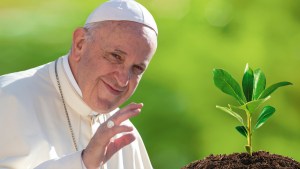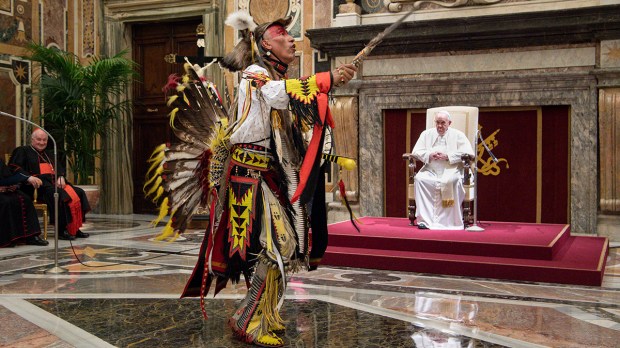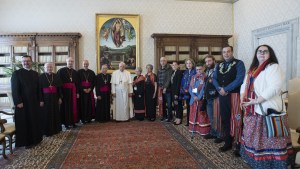A seminal moment that could change the course of Canadian history, and set not only the Roman Catholic Church but the country as a whole on the path to a new and renewed relationship with its indigenous people. This is how Chief Cadmus Delorme of the Cowessess First Nation described the much-anticipated visit of Pope Francis to Canada from July 24 to 29.
“I have a five-year old daughter, and for her and all our future generations, the pope’s apology, if done correctly, will help with the journey of healing,” he said. It will be a validation of the pain we suffered when those unmarked graves were found.”
The Chief was referring to the “discovery” a year ago by the Canadian and international media of 751 unmarked graves of children found on the site of the former Marieval Indian Residential School, about 140 kilometers east of Regina, in the province of Saskatchewan.
The Marieval Indian Residential School
The Marieval Indian Residential School operated from 1899 to 1997. For nearly a century, the Catholic Church and the Canadian government operated the school (and other similar institutions), stripping children of their indigenous heritage and identity while subjecting them to physical, emotional and sexual abuse at the hands of their teachers.
Delorme was referring to these tragic events, which have caused “multigenerational trauma,” at a webinar hosted by the MacDonald Laurier Institute, a Canadian public policy think-tank based in Ottawa. The webinar explored the potential and expectations of the pope’s visit and the apology he is expected to deliver, from two perspectives: that of the affected Indigenous communities, and the Catholic Church. Other panelists were Michael Higgins, an eminent Catholic scholar and President and Vice Chancellor of Corpus Christi College and St. Mark’s College, University of British Columbia, and Melissa Mbarki, policy analyst with the MacDonald Laurier Institute and member of the Muskowekwan First Nation. Ken Coates, Director of the Indigenous Affairs program at the MacDonald Laurier Institute, moderated the panel.
Although not a victim himself of residential school abuse, Delorme said his mother and grandmother had experienced the pain and humiliation inflicted by these institutions.
A journey of healing
“The pope’s visit should start our journey of healing,” Melissa Mbarki said. “We should truly embrace his apology and come up with steps to move forward. We need to address the issues of drugs and alcohol, which are rampant in our communities.”
Pope Francis very attentive to the pain of the “other,” Michael Higgins said, referring to the fact that the pontiff is from Argentina, where the “sword and the cross” approach was used to convert the multitudes. “But Vatican II changed the way the Church viewed its mission. It’s not enough to exchange pleasantries. It’s important to respect the ‘other.’ The rhetoric of obliteration, which claimed that ‘you are not a culture or a nation,’ has been replaced by the view that people are to be reverenced, not conquered. And Pope Francis believes profoundly in the vision of Vatican II.”
Higgins went on to say that the visit and apology will fulfill a request made by the Truth and Reconciliation Commission, a commission that was established in 2008 with the mandate of looking into the lasting impacts of the residential school system
Between 2008 and 2015, the commission recorded the stories of 150,000 Canadian survivors of these schools, which were specifically designed for the assimilation of the indigenous population. Its final report, released in December, 2015, labelled the system as “cultural genocide” and set out a number of recommendations, calling on the pope to issue an apology to survivors, their families, and communities for the Roman Catholic Church’s role in this.
An apology from the pope
A delegation of First Nations leaders met with the pope in March this year. Their leader, Chief Gerald Anotine, had said at the time that he believed this meeting would be the beginning of a “new partnership” between indigenous groups and the Catholic Church in working towards reconciliation.
“The delegation of indigenous leaders who met the pope and requested the apology was well received,” Higgins said. “Undoubtedly Canadian Cardinals Marc Oulette and Michael Czerny were enablers in the background.”
Asked whether the pope would issue a personal or institutional apology, Higgins replied he was not sure, adding that “Pope Francis does not always act according to the script, so this visit could provide some remarkable epiphanies.”
Melissa Mbarki summarized some practical steps that she hoped would come out of the visit of Pope Francis. “I hope the Canadian government and the Church come together, and turn these residential schools in to healing centres, and elders’ centres, and address social issues.”
Referring to one social issue—that of poverty in indigenous communities—Chief Delorme said: “I manage poverty all the time, and this is very tiring for leaders.” But he expressed the hope that the relations between Indigenous people, the Church and the Canadian people as whole would take on a whole new direction.
“Hope drives us every day. This apology is about hope, and about adjusting the compass,” he said.



